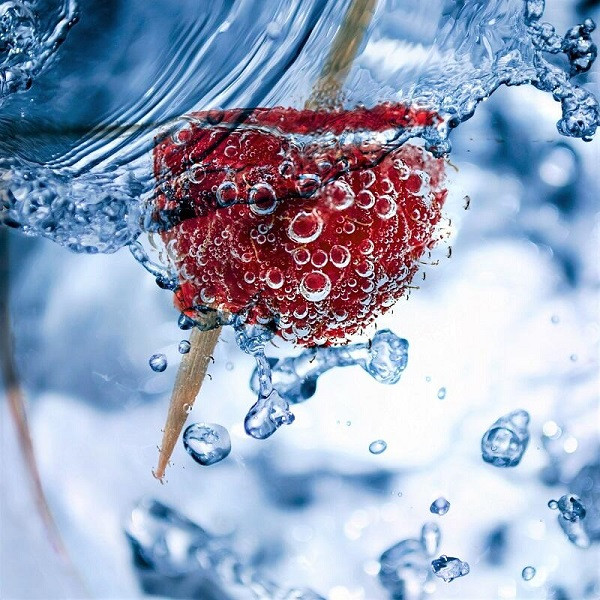✕

Column: industry Tag: raspberry,insempra,fragrances,fermentation Published: 2023-04-06 10:48 Source: www.foodingredientsfirst.com Author: Benjamin Ferrer
“Biology-powered” innovator Insempra has launched its first functional ingredient, a biotechnologically produced, 100% natural alpha-Ionone flavor and fragrance ingredient for food and beauty market applications. The fermentation-based alpha-Ionone, initially developed by Phytowelt Green Technologies, is an EU-natural certified, vegan, food-grade ingredient.

Insempra has partnered with the German natural aroma ingredients manufacturer and distributor Axxence Aromatic to market the product to food and beauty manufacturers globally. Under the terms of the agreement, Axxence has been distributing the product to customers since the beginning of 2023.
“With the launch of this superior alpha-Ionone aroma, Insempra is demonstrating its unique approach to technology onboarding, scaling and rapid go-to-market capabilities in the delivery of the next generation of sustainable, biotechnologically produced functional ingredients,” says Insempra CEO and founder Jens Klein.
“By identifying a market-driven need for a more sustainable ingredient solution and finding the right partners, we are able to deliver a 100% natural, fermentation-based functional ingredient for food and beauty applications that is truly superior to natural or synthetic alternatives.”

Alpha-Ionone is an aroma compound found in a variety of essential oils, mainly derived from natural sources such as raspberries, almonds and blackberries.
An extract of essential berry oils
Alpha-Ionone is an aroma compound found in a variety of essential oils, mainly derived from natural sources such as raspberries, almonds and blackberries.
In contrast to chemically manufactured, racemic alpha-Ionone aromas, Insempra’s natural product is classified as a “more defined and purer” aroma achieved by selectively producing only the desired enantiomer, (R)-alpha-Ionone.
Alpha-Ionone is an aroma compound found in a variety of essential oils, mainly derived from natural sources such as raspberries, almonds and blackberries. It conveys a “deep and fresh” violet and raspberry aroma that can be applied to a variety of consumer products.
The production of raspberry aroma by farming would require more than a hundred metric tons of raspberries, which translates to approximately 40 football fields of cultivated acreage – “a highly unsustainable use of land that is equally disproportionate in its output,” Insempra details.
The alternatives to naturally derived alpha-Ionone are chemically manufactured aroma replicas which are currently broadly used in consumer goods.
“The trend toward natural ingredients is driving the biotechnological production of aromas which in this example could be done with just one production run on a small-scale fermenter compared to the exorbitant land use if extracted from nature,” highlights Insempra.
Insempra’s biotechnology platform capabilities combined with Axxence’s market access ensures quality consistency for flavor and fragrance manufacturers, details the partnership.
“We have successfully introduced (R)-alpha-Ionone to the market,” adds Ron Honing, CEO of Axxence. “Now with the support of Insempra we will enter a new avenue that will improve the speed to market and a balanced cost in use.”
“Together we will explore the pathway of Natural aroma ingredients and will bring more sustainable ingredient solutions that clearly deserve the EU Natural label.”

Precision fermentation is also enabling the production of nature-identical animal proteins, fats, flavors, enzymes, vitamins and more, made entirely without the animal.
Fermenting fragrances and more
The industry movement harnessing precision fermentation to sustainably scale new and highly functional ingredients is gaining traction across both the beauty and food sectors. It has been leveraged in creative applications, such as crafting meatballs made from the extinct wooly mammoth.
Precision fermentation enables the production of nature-identical animal proteins, fats, flavors, enzymes, vitamins and more, made entirely without the animal. By programming microbes to make milk proteins, F&B formulators have been able to “brew” authentic dairy while taking the cow out of the equation.
Compared to conventional agricultural protein production, precision fermentation needs 1,700 times less land and requires up to 138,000 and 157,000 times less land than beef and lamb production, respectively, according to The Live Green Company.
In the skincare arena, biotech company Debut entered an agreement with fine chemicals supplier DIC Corporation to biomanufacture and sell a large number of sustainably produced, rare and natural polyphenol ingredients through fermentation-based synthetic biology.
Last month, Biotechnology company Cambrium launched its first product, NovaColl. The fermentation-based ingredient is dubbed the first micro-molecular and 100% skin-identical collagen specifically designed for premium personal care formulations.
In a recent Special Report, PersonalCareInsights caught up with Mibelle Biochemistry about the benefits of fermented ingredients for the skin microbiome, while Amyris shared insights on how precision fermentation is further being used to scale “rare or endangered” beauty molecules.
Previous:Craving clean: Natural and functional ingredient rollouts support flavoring and stabilizing properties
Next:Barry Callebaut appoints new CEO, half-year sales volumes drop
Hot key words
Hot Products
Popular Vendors